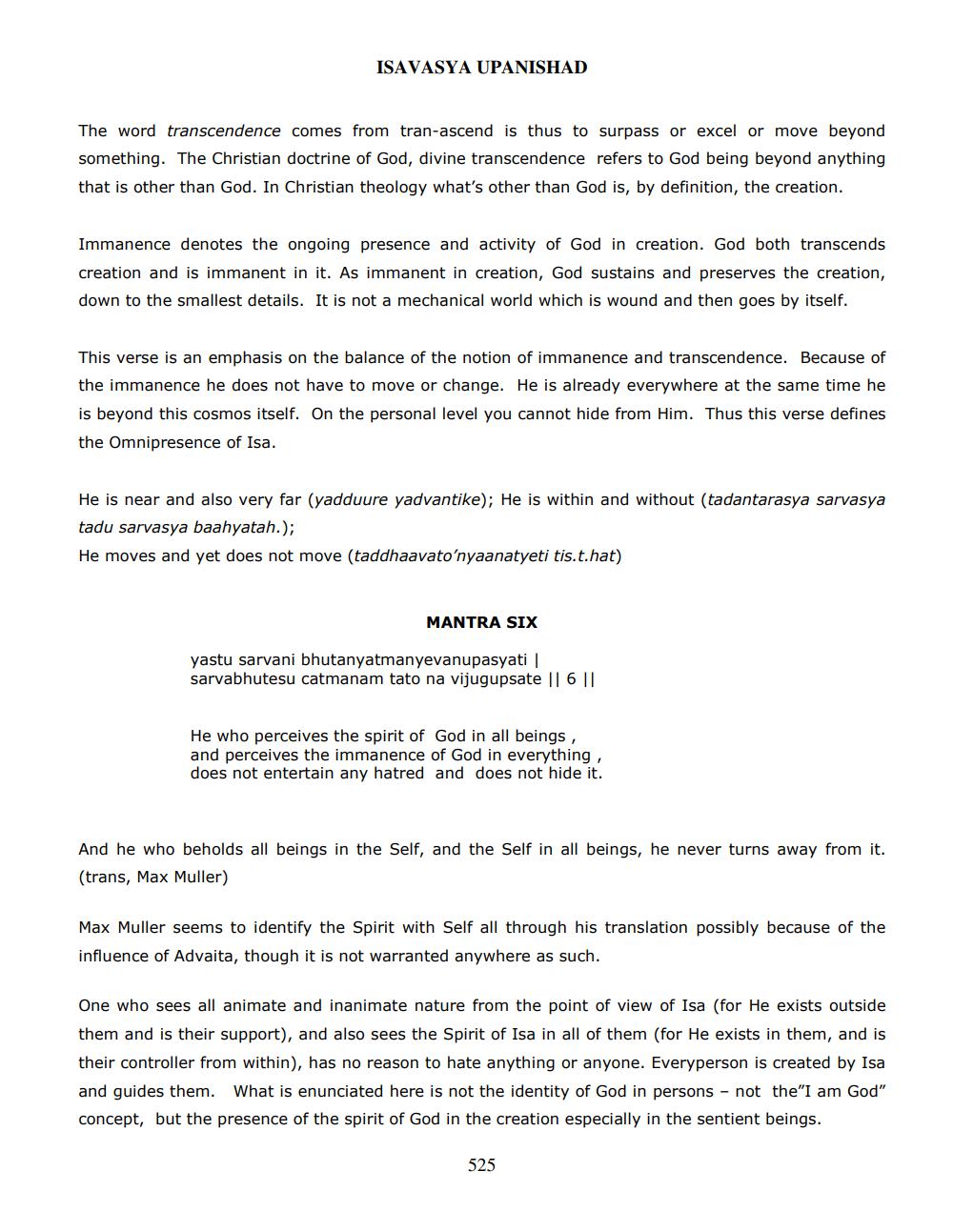________________
ISAVASYA UPANISHAD
The word transcendence comes from tran-ascend is thus to surpass or excel or move beyond something. The Christian doctrine of God, divine transcendence refers to God being beyond anything that is other than God. In Christian theology what's other than God is, by definition, the creation.
Immanence denotes the ongoing presence and activity of God in creation. God both transcends creation and is immanent in it. As immanent in creation, God sustains and preserves the creation, down to the smallest details. It is not a mechanical world which is wound and then goes by itself.
This verse is an emphasis on the balance of the notion of immanence and transcendence. Because of the immanence he does not have to move or change. He is already everywhere at the same time he is beyond this cosmos itself. On the personal level you cannot hide from Him. Thus this verse defines the Omnipresence of Isa.
He is near and also very far (yadduure yadvantike); He is within and without (tadantarasya sarvasya tadu sarvasya baahyatah.);
He moves and yet does not move (taddhaavato'nyaanatyeti tis.t.hat)
MANTRA SIX
yastu sarvani bhutanyatmanyevanupasyati | sarvabhutesu catmanam tato na vijugupsate || 6 ||
He who perceives the spirit of God in all beings, and perceives the immanence of God in everything, does not entertain any hatred and does not hide it.
And he who beholds all beings in the Self, and the Self in all beings, he never turns away from it. (trans, Max Muller)
Max Muller seems to identify the Spirit with Self all through his translation possibly because of the influence of Advaita, though it is not warranted anywhere as such.
One who sees all animate and inanimate nature from the point of view of Isa (for He exists outside them and is their support), and also sees the Spirit of Isa in all of them (for He exists in them, and is their controller from within), has no reason to hate anything or anyone. Everyperson is created by Isa and guides them. What is enunciated here is not the identity of God in persons - not the"I am God" concept, but the presence of the spirit of God in the creation especially in the sentient beings.
525




